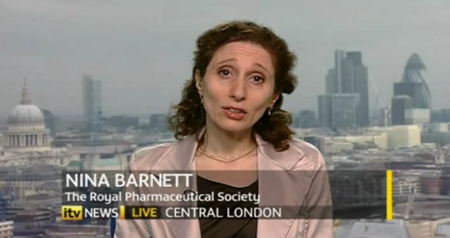by Kazeem Olalekan MRPharmS
I will be upfront….This is not a scare story. This is a story about a pharmacist’s attempt to cut through an issue that was brought to our consciousness recently (27/02/2012) by the publication on BMJ Open of a paper alerting us to the risk that hypnotics (the drug we use to treat insomnia) was associated with mortality or cancer.
The good news:
When interviewed on the ITV news program on this issue, Nina Barnet (Consultant Pharmacist – Older People) and spokesperson for the Royal Pharmaceutical Society said:
I think the message to everyone is there is no immediate danger and there is no need to immediately stop taking your medicine….This is an opportunity to go and talk to your GP or talk to your pharmacist about how you might manage sleep problem perhaps in a different way
The bad news:
Reading the replies to the original paper on BMJ Open (link), it will appear that some commentators have some ‘beef’ about the lack of a insomnia treatment guideline by NICE. Colin A Espie, Director, University of Glasgow Sleep Centre (and others), wrote in their piece titled: “Insomnia in the UK: who cares?” that:
Insomnia likewise has lacked a clinical specialty to champion the disorder….What is needed now is clear direction, by means of national guidelines, to structure clinical management and service provision in this neglected area.
The ugly news:
There is a guidance (TA77) issued by NICE in 2004: “Guidance on the use of zaleplon, zolpidem and zopiclone for the short-term management of insomnia” (and it is on your iphone App too) which scoped the problem of insomnia and recommended the use of these agents for short periods only (Zaleplon for maximum of 2 weeks; Zolpidem for maximum of 4 weeks and Zopiclone for maximum of 3 weeks). Suffice to say, I still see occasional use of these medication for longer periods. With the new research and what we already know about these products (with respect to next day sedation, dependence and withdrawal), I will have to re-double by efforts in querying any long term use of these medications.
The not so ugly news:
Insomnia is a disturbance of normal sleep patterns commonly characterised by difficulty in initiating sleep (sleep onset latency) and/or difficulty maintaining sleep (sleep maintenance). The video below from NHS Choices illustrates the problem:
According to Professor Kevin Morgan (in video) (Director of the Clinical Sleep Research Unit at Loughborough University) on Cognitive and behavioural treatment:
We know from the evidence that over 80% of people who receive this therapy find it effective in the longer term
It is clearly important therefore, that those that are likely to need these hypnotics for longer than a month should be considered for a Cognitive and behavioural therapy. However according to the NICE guidance (TA77):
Other non-pharmacological interventions (for example, cognitive behavioural therapies) have also been shown to be effective in the management of persistent insomnia. However, although GPs and pharmacists can deliver appropriate advice and education, access to many non-pharmacological therapies is restricted through a combination of a lack of trained providers, cost and a poor understanding of available options.
Using my sharp knife to cut through the issue: It would appear that a key point might be related to signposting of patients to well trained and regulated providers of cognitive and behavioural therapies. Where are these experts based? I guess the Sleep Research Units of local hospitals or Universities are a good start. Did you know there is a British Sleep Society? Well there is – trust me! The website says it is ‘UK Multidisciplinary Sleep Professionals’: The British Sleep Society (BSS) is a professional organisation for medical, scientific and healthcare workers dealing with sleeping disorders. I feel pharmacists who might find this area fulfilling should get involved.
A good place to start
Haven gone round the blocks, I feel a good place to start for anyone suffering with insomnia should be to visit the NHS Choices website and read the very good article and related materials on insomnia. I have provided a collection of links below:
Sleep tight!








 (1 votes, average: 4.00 out of 5)
(1 votes, average: 4.00 out of 5)
Leave a Reply